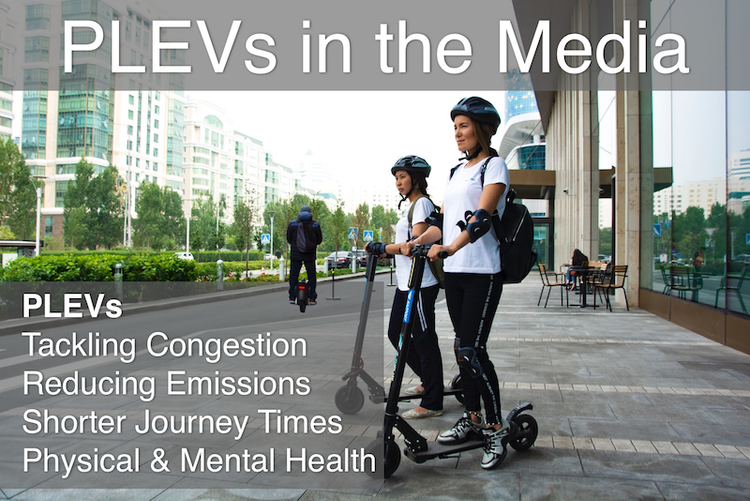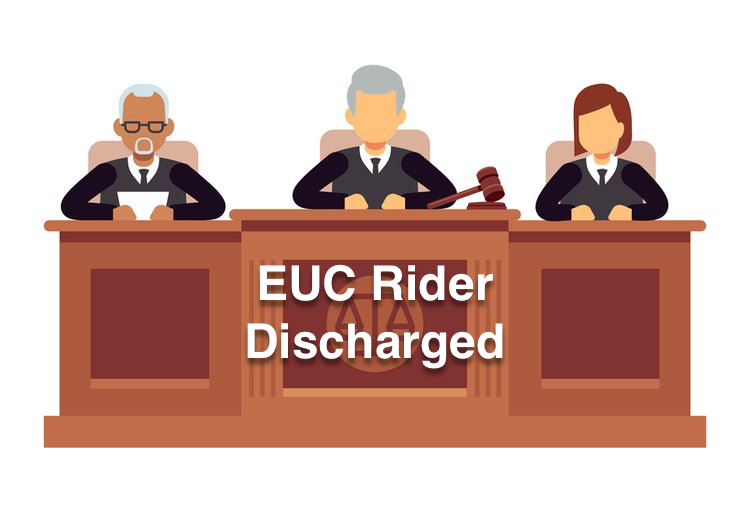The Transport Select Committee held a session on 17th May 2023, where the Rt Hon Jesse Norman MP, Minister of State, Department for Transport, and Anthony Ferguson, Deputy Director for Traffic and Technology, Department for Transport provided updates on UK e scooter legislation.
The session focused on the future legislation, potential inclusions of other devices, reasons for legislative delays, safety considerations, and concerns about privately owned e-scooters and insurance.
Key Discussion Points
Future e Scooter Legislation
The minister expressed a need for more data before the Department for Transport (DFT) can propose any primary legislation. This data would inform a robust consultation process, where stakeholders could weigh in on several matters like insurance alternatives, safety measures, weight restrictions, and helmet use.
"We certainly don't have a consolidated basis of consultative evidence. And it wouldn't be normal practice for DFT to proceed without a pretty full consultation on this kind of issue, certainly not with primary legislation." - Rt Hon Jesse Norman MP
Inclusion of Other PEVs, Including E-bikes
In the discussion on other forms of transport that might be regulated, there was no specific mention of devices beyond electric scooters. However, the conversation around new legislation implied that it would apply to broader micro-mobility forms, potentially including e-bikes. The Deputy Director mentioned the "free floating model" prevalent in London, where e-bikes and e-scooters are used interchangeably.
Reasons for e Scooter Legislative Delays
Delays in legislation were attributed to the need for non-pandemic, large-scale usage data, and the importance of comprehensive consultation before legislation. This would include gathering more information on issues like helmet use, weight limitations, and insurance options. Jesse Norman MP emphasised the necessity for a "proper, settled public view" before they could legislate.
e Scooter Safety
Safety was a recurring theme throughout the session. Concerns were raised around the need for helmet use, the appropriate weight of electric scooters and e-bikes, and the potential safety risks to pedestrians and disabled individuals. The Minister acknowledged these issues and noted the necessity for further data and consultation. He suggested the need for additional safety equipment and even floated the idea of minimum age restrictions.
Privately Owned e Scooters
The issue of privately owned electric scooters was addressed in the context of regulation and enforcement. The minister and deputy director highlighted the complexity of enforcing rules around private e-scooters.
They acknowledged that law enforcement agencies may need to increase their activity in this area.
e Scooter Insurance
The session touched on the topic of insurance alternatives for e-scooter riders. The minister stated the need to consult stakeholders on this issue to get their perspectives, indicating that there are still discussions and considerations around this topic to be done before they can propose any legislative changes.
Concerns Surrounding e Scooters
The committee expressed frustrations about the slow pace of progress, with concerns that the UK was being left behind in e-scooter legislation.
Issues raised included the potential misuse of e-scooters in criminal activities and the impact on disabled individuals due to cluttered pavements and cycle lanes. The Minister noted these concerns and proposed solutions such as better enforcement, utilisation of digital tools for tracking, and local regulation of parking.
The session concluded with the emphasis on monitoring the current trials closely to learn from the ongoing qualitative data and addressing the challenges faced in these trial areas.
The Minister stated that they stand ready to have a conversation with the Home Office regarding further enforcement measures.
The committee looks forward to an update on the results from these trials, which will further guide the forthcoming legislation for e-scooters and possibly other micro-mobility devices.
"That's I would say as part of the qualitative learning that we're getting from the trials. So we talk regularly to the operators and the local authority areas taking part to understand what are the challenges they're facing." - Anthony Ferguson, Deputy Director for Traffic and Technology, Department for Transport
Summary
The Transport Select Committee session reiterated the complexity of implementing robust and comprehensive legislation for e scooters, potentially e-bikes and other micro-mobility devices.
While acknowledging concerns and challenges, it underscored the necessity for further data collection, consultation, and trials before any definitive steps can be taken in forming and enforcing a new set of laws. The Department for Transport aims to strike a balance between promoting innovative and sustainable transport methods and ensuring safety and order in public spaces.
The Minister and Deputy Director's responses throughout the session made it clear that the Department for Transport is considering multiple aspects of the issue — from the practical considerations of enforcement to the broader implications for public safety and the innovative transport industry.
The forthcoming legislation, guided by these discussions and the results of ongoing trials, will be a significant determinant in shaping the UK's micro-mobility landscape.
CLICK HERE for original video recording
Update
6th July 2023
Transport Research Laboratory (TRL) and Warwick Manufacturing Group (WMG) have secured a contract from the UK's Department for Transport (DFT), to shape the technical requirements for future electric scooter legislation.
CLICK HERE for more information.
Let me know in the comments below, if you found this update of interest.


















